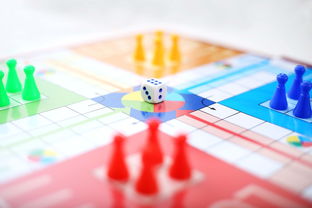In the world of sports, where the thrill and excitement never fade, the concept of "ball odds" or "88" as it is commonly known, plays a significant role. This article will explore the world of 88, discussing its origins, how it is calculated, and its impact on sports events.
The Origin of 88
The term "88" or "cái rồng" as it is known in Vietnamese, originated from the Chinese word "cái rồng", which means "to bet". In the early days of gambling, the Chinese used a system of symbols to represent different numbers, and "88" became a popular term for the number 88, which in Chinese culture is considered auspicious. The term spread to Vietnam, where it is still widely used today.

Calculating 88
Calculating 88 is a complex process that involves understanding the probability of an event occurring. Bookmakers or sportsbooks use a variety of factors to determine the odds of a particular outcome, including the skill level of the players, the history of the match, and the current form of the teams. The odds are then converted into a number, with the most common being the decimal format. For example, if a team is deemed to have a 70% chance of winning, the odds may be calculated as follows: 1 divided by 0.7 = 1.429. In this case, the 88 would be 142.9.
Impact of 88 on Sports Events
The concept of 88 has a significant impact on sports events. It affects the way bookmakers set their odds and the way punters or bettors make their decisions. By understanding the odds and the factors that influence them, punters can make more informed decisions about their bets. For example, if a team has a high probability of winning but the odds are low, a punter may decide to place a smaller bet on that team to reduce their risk. Conversely, if a team has a low probability of winning but the odds are high, a punter may decide to place a larger bet on that team to take advantage of the high payout.
The Impact of 88 on Bookmakers
Bookmakers or sportsbooks use 88 to determine their odds and profit margins. By understanding the probability of an event occurring and the size of the potential payout, bookmakers can set their odds in such a way that they are able to make a profit from each bet placed. For example, if a bookmaker believes that a particular team has a 50% chance of winning, they may set the odds at 2.00 (or 1/2). This means that for every $1 wagered on that team, the bookmaker will pay out $2 if the team wins, keeping $1 as their profit margin. By managing their odds and payouts carefully, bookmakers can ensure that they are able to make a consistent profit from their business.
In conclusion, 88 or "cái rồng" as it is known in Vietnamese, plays a significant role in the world of sports gambling. It affects the way bookmakers set their odds and the way punters make their decisions about their bets. By understanding the concept of 88 and how it is calculated, we can gain a deeper understanding of the world of sports gambling and make more informed decisions about our betting strategies.









